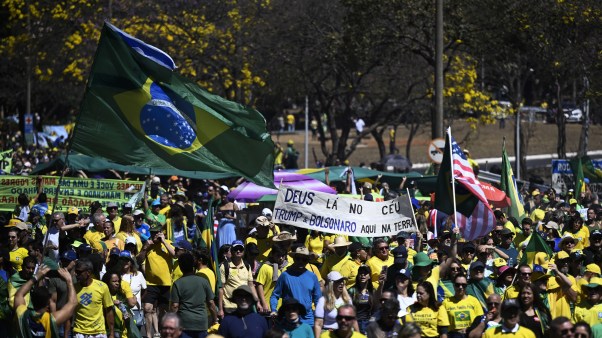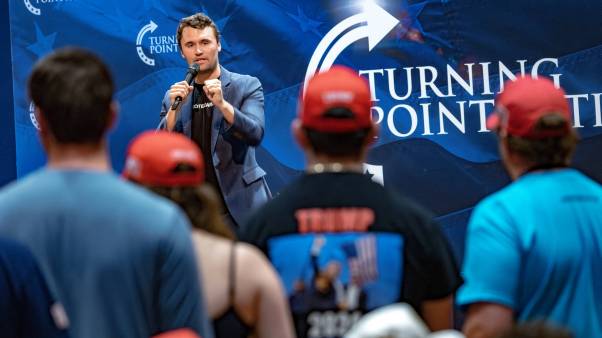If we lived in normal times, few would notice if the Supreme Court agreed that a group had the right to practice its religious views without government interference. The plaintiffs would sigh in relief, the chastised government agency would formulate new rules, and we'd all move on.
Obviously, we do not live in normal times. The farther we get from the Supreme Court's decision on behalf of Hobby Lobby and Conestoga Wood Specialties, the less it feels like a victory for anyone. Instead, it reminds us that fewer and fewer of our neighbors understand how religious organizations—and all communities smaller than the state—contribute to human flourishing and the common good.
One essential question in Burwell v. Hobby Lobby was the extent to which a for-profit corporation can hold to a religious (in this case, Christian) identity. In her dissent, Ruth Bader Ginsburg cited approvingly the idea that for-profit groups "use labor to make a profit, rather than to perpetuate a religious-values-based mission."
The words rather than are key. In Justice Ginsburg's view, it seems, corporations cannot serve—or at least the law cannot recognize that they serve—any god other than Mammon. She articulated an equally small view of nonprofits when she wrote that "religious organizations exist to foster the interests of persons subscribing to the same religious faith."
This may indeed describe the mission of some churches and synagogues. But tragically, it seems Justice Ginsburg has never met a religious community that takes seriously William Temple's words that the church "exists for the benefit of those who are not its members." Such communities, which we regularly cover in CT, call their members to radical sacrifice on others' behalf.
Even for-profit corporations can and do serve all kinds of purposes other than profit. From large public companies like Whole Foods to the new "for-benefit corporations" that are now legal in 14 states, many corporations explicitly seek more than a return on investment. When a liberal jurist echoes the economic dogma of Milton Friedman, something odd is happening in the culture.
What is happening is the erosion of corporate identity. We get our word corporate from the Latin word for "body." It echoes the biblical (and Greco-Roman) comparison of a community to a human body, with many parts working together for some greater good. The widespread alarm that "the Court thinks corporations are people!" is misplaced. As the journalist Megan McArdle observed, we want our society to treat corporations—whether for-profit or not-for-profit—like persons in many respects. Otherwise, "the government would have the right to shut down the presses at The New York Times; search Google's servers without a warrant whenever they liked; tell churches (usually organized as corporations) what they could believe . . . and otherwise abridge fundamental human rights."
Many of those fundamental human rights can be exercised only in community, in a form that embodies our shared commitments to one another.
And yet we are witnessing a great withering in corporate life—the very forms that gave previous generations of Americans a sense of belonging and identity, as well as a place to work for the common good. Fifteen years after political scientist Robert Putnam coined the phrase "bowling alone," small- and medium-sized civic associations, businesses, and churches have only continued to wane. Fewer and fewer Americans have thick connections to the small-scale communities that used to mediate life; indeed, with 41 percent of children born out of wedlock, many Americans now grow up without even a stable and committed family, the smallest yet most crucial community.
The problem with corporate life, from a modern view, is that any community, like any physical body, requires boundaries to survive. Political parties need to exclude some policies in order to advance others. Families are constructed by exclusive vows and bonds of loyalty. Likewise, religious communities hold their members to unique and often higher standards than those of the broader society.
And here lies the rub: an individualistic world is scandalized by any community whose boundaries threaten the freedom of the individuals within it. Especially, we are discovering, when those boundaries place restrictions on the choices individuals make about sex.
Such a world promotes transactional relationships, overseen by the only form of community that remains: a centralized and powerful nation-state. Rather than existing to protect small- and medium-sized communities, the state views them with suspicion. Or the state redefines them, as did Justice Ginsburg, by reducing them to the most venal of motives.
What is the most deeply Christian response to such a world?
It can only be to commit ourselves even more completely to that countercultural, corporate reality known as the church, in all its imperfect and local expressions, and in its wider global reality.
The church makes a stronger claim on us than the state. According to Jesus, it makes a deeper claim even than the family. And by being stronger and deeper than the family and the state, the church provides a family for those without families, and a people for those discarded and marginalized by society.
True, it asks a great deal of us—sacrifice and holiness, rooted in humility and repentance. But it also gives us the corporate life for which every human is made, and for which many of our neighbors still long.
Andy Crouch is CT executive editor.










